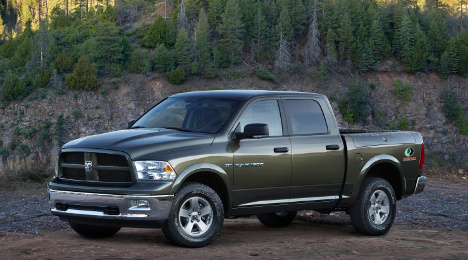Fiat Chrysler consent order keeps recalls in forefront

By subscribing, you agree to receive communications from Auto Remarketing and our partners in accordance with our Privacy Policy. We may share your information with select partners and sponsors who may contact you about their products and services. You may unsubscribe at any time.
CARY, N.C. –
Last year, there was the ignition issue in older General Motors vehicles. Then earlier this year came faulty Takata airbags that impacted Honda as well as more than a half dozen automakers. Now in the past couple of days, Fiat Chrysler is buying back units and being forced to pay nine-figure penalties.
Recalls are keeping dealership service bays humming, lawmakers pontificating and perhaps pushing consumers to become numb about the importance of having these repairs completed.
“There’s no doubt automakers are feeling increased pressure to identify and address recalls than in years past,” Kelley Blue Book senior analyst Karl Brauer said on Monday in a message to Auto Remarketing.
“The high visibility of the airbag and ignition switch recalls have focused the government’s attention on this issue, and the $105 million fine FCA has been ordered to pay confirms the elevated scrutiny level and cost that automakers have to consider going forward,” Brauer continued.
The latest development is the matter involving FCA US, which is being instructed to buy back a group of trucks and SUVs as part of a consent order with the National Highway Traffic Safety Administration announced over the weekend — an agreement that includes $105 million in penalties.
The agreement is so complicated that the automaker had to send a clarification on Monday to refute online reports that the OEM said were inaccurate.
Subscribe to Auto Remarketing to stay informed and stay ahead.
By subscribing, you agree to receive communications from Auto Remarketing and our partners in accordance with our Privacy Policy. We may share your information with select partners and sponsors who may contact you about their products and services. You may unsubscribe at any time.
In each of the campaigns mandated by NHTSA, FCA US indicated it will offer to owners whose vehicles have not yet been remedied, as an alternative remedy, to repurchase those vehicles at a price equal to the original purchase price less a reasonable allowance for depreciation plus 10 percent.
“However, customers responding to the recall may continue to keep their vehicles and have them repaired in accordance with the original recall,” Fiat Chrysler officials said.
As of Monday, the automaker determined repairs have been completed on more than 60 percent of the subject vehicles, leaving less than 200,000 eligible units.
“As is expressly provided for under the consent order, FCA intends that any vehicles repurchased will be remedied and resold,” OEM officials said.
In addition, FCA US is offering consumer incentives to encourage owners of vehicles subject to the structural reinforcement campaign to participate in the campaign.
With respect to the 1993 through 1998 Jeep Grand Cherokees that have been part of the recall infractions, too, the OEM said it is also offering to increase the trade-in allowance to be applied to the purchase of another FCA product, service or parts for those owners of these very old vehicles who would prefer this alternative over the installation of a trailer hitch.
Officials added all premiums paid to repurchase vehicles in the three recall campaigns and customer incentives will be applied as credits to the $20 million that FCA US has agreed to spend on industry outreach amounts included in the $105 million referred to in the consent order.
“While such amounts may exceed the $20 million, contrary to certain reports, FCA US does not expect that the net cost of providing these additional alternatives will be material to its financial position, liquidity or results of operations,” OEM officials said.
Looking at the incident in even more broad terms, KBB’s Brauer suspects Fiat Chrysler will sustain little damage from this matter when it comes to its used-vehicle operations as well as residual values.
“In other large recalls over the last five years, we’ve seen a relatively small impact on residual value,” Brauer said.
“I think the assumption is that while a recall may impact a large volume of vehicles, the fix is usually pretty quick and inexpensive on a per-vehicle basis,” he continued. “This means dealers or consumers can address the issue and have an otherwise problem-free car.”


